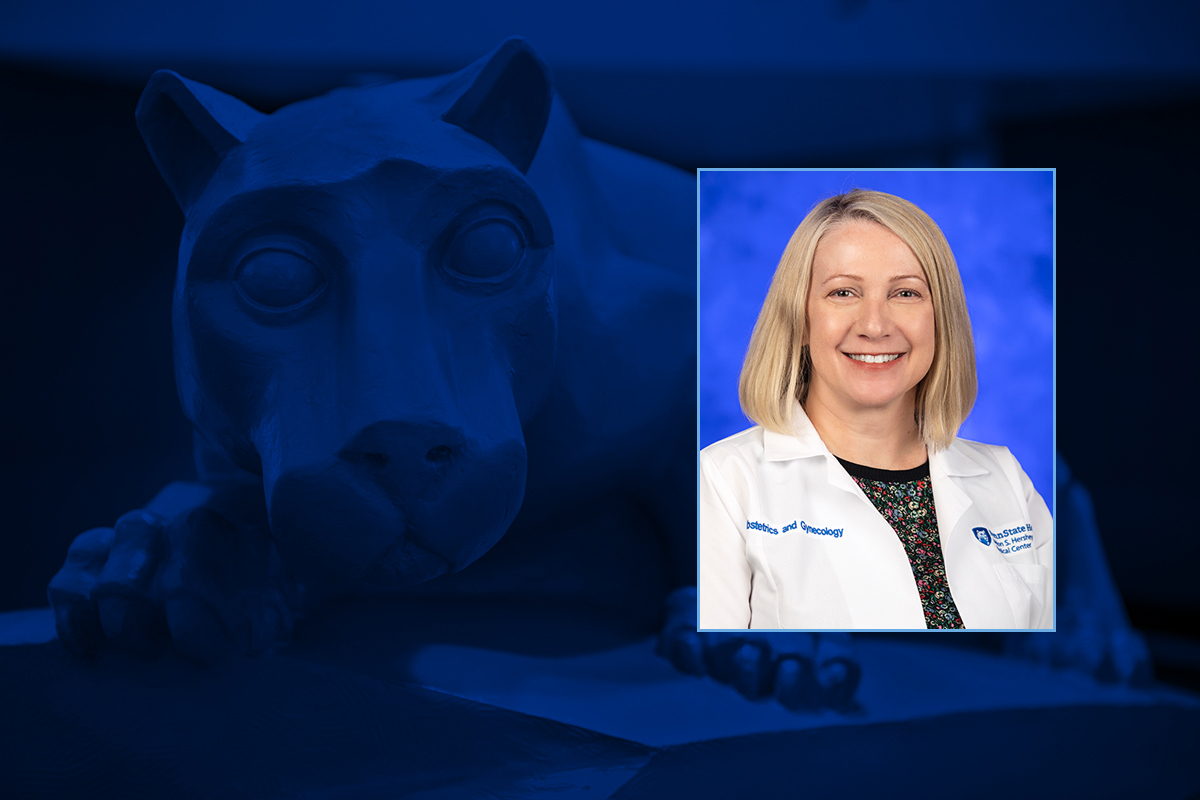Advanced Practice Provider Spotlight: Nurse midwife shares insights on caring for diverse patients

Advanced practice providers (APPs) play an integral role in meeting the needs of Penn State Health’s increasingly diverse patient populations. With their advanced training and credentials, these professionals expand access to high-quality care, build trust with patients and are a valuable aspect of patients’ overall experience.
This is part 1 of a two-part feature on nurse midwives in our APP Spotlight series.
While working at a bookstore as a teenager, Jennifer Pagani-Smith, a nurse midwife at Penn State Health Milton S. Hershey Medical Center, said a coworker showed her the book, “Our Bodies, Ourselves.” That opened up a whole new world for her on women’s health and inspired her to become a nurse midwife.
After receiving care from midwives during the birth of her son, Pagani-Smith said she was empowered to make good health decisions for herself and her newborn and felt “called” to the profession. Becoming a midwife, she said, was a way to give the same gift of empowerment and confidence to other women.
Pagani-Smith studied fine arts at Penn State and then earned her bachelor’s and master’s degrees in nursing from Emory University in Atlanta. She returned to Lancaster to be closer to her family and work as a certified nurse midwife. During her practice, she met many patients with opioid use disorder and histories of trauma, sparking her interest in addressing these problems.
In 2022, she joined the Department of Obstetrics and Gynecology at Milton S. Hershey Medical Center. She is now pursuing a doctorate at Penn State to merge addiction medicine with obstetrics, with a focus on pregnant women who are incarcerated.
Diversity enhances health care experience
The level of care and the patient experience are enhanced when both providers and patients share their cultural experiences and backgrounds, Pagani-Smith said. Language barriers are a common challenge, she added, but she appreciates the interpretation services and learning resources available at Penn State Health.
“I’ve struggled to learn Nepalese on my own, but I’ve found resources at the health system’s Inclusion Academy and am currently learning Spanish through Penn State’s World Campus,” she said. “Speaking directly to my Spanish-speaking patients in their language fosters trust and understanding during pregnancy, a period often riddled with anxiety. As a patient, I think it’s reassuring to have a provider who speaks ─ or tries to speak ─ to you in your language and is interested in learning about your culture and individual beliefs.”
A lifelong learner, Pagani-Smith said she is also dedicated to tackling health care disparities. One way she aims to do this is by representing certified nurse midwives during Black Maternal Health Week each year from April 11 to 17. She also said that her department accommodates patients with language and cultural needs by offering extended appointment times.
A labor of love
With its challenging hours and emotional and physical demands, being a nurse midwife isn’t an easy job, though Pagani-Smith says it is one she loves.
“I’m honored to be allowed to participate in a woman’s reproductive journey and, for a brief time, be a part of their family,” she said. “The trust placed in me by a patient is truly profound, and I feel that sense of responsibility to my soul. The moment parents finally meet that baby – it’s indescribable! Even when that moment isn’t joyful, I’m privileged to share their sorrow. These deeply emotional bonds – and more often than not it’s a happy time – are what motivate me to continue this important work.”
How to become a certified nurse midwife
After completing a bachelor’s program in nursing, nurse midwives generally earn at least a master’s degree in nursing, although some go on to earn a doctorate in nursing practice. They complete an accredited midwife program and must pass an examination for licensure.
Their patient care responsibilities include:
- Conducting physical exams
- Ordering and performing diagnostic tests
- Prescribing medications and developing treatment plans
- Educating women on childbirth and helping them plan for delivery
- Monitoring fetal development and the mother’s health throughout the pregnancy
- Attending births and supporting mothers
- Assisting mothers with infant care and feeding and postpartum care
- Performing low-intervention techniques to induce labor or relieve pain during labor
- Engaging medical doctors or specialists as needed during pregnancy or childbirth
The advance practice providers at Penn State Health include certified registered nurse practitioners, physician assistants, certified registered nurse anesthetists, certified nurse midwives and clinical nurse specialists. Rigorously trained and credentialed, APPs work collaboratively with other health care providers to offer patients the highest level of care possible.
See the previous APP Spotlight feature on physician assistants.
If you're having trouble accessing this content, or would like it in another format, please email Penn State Health Marketing & Communications.
